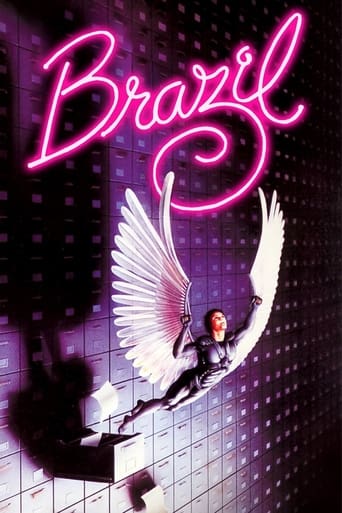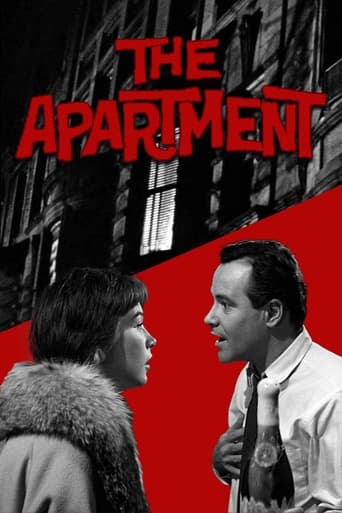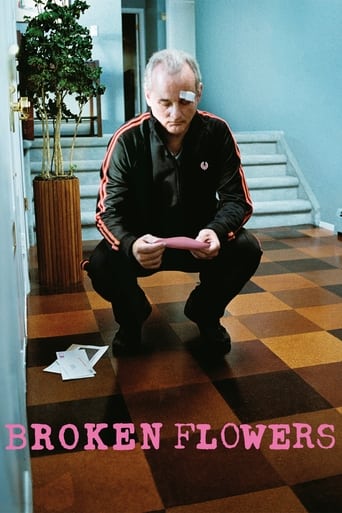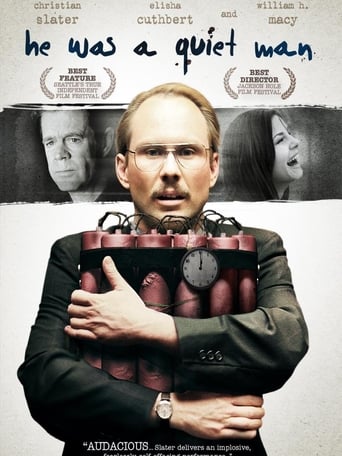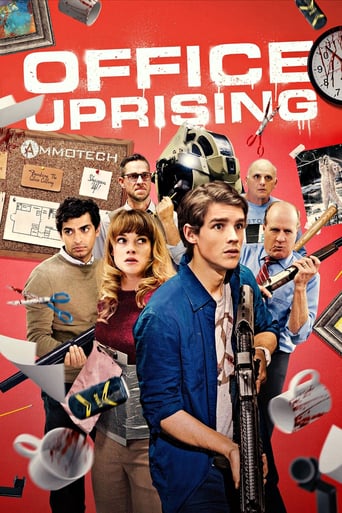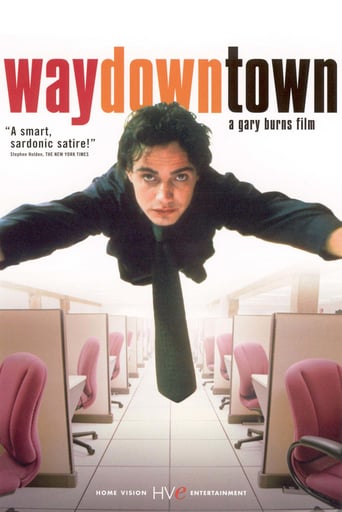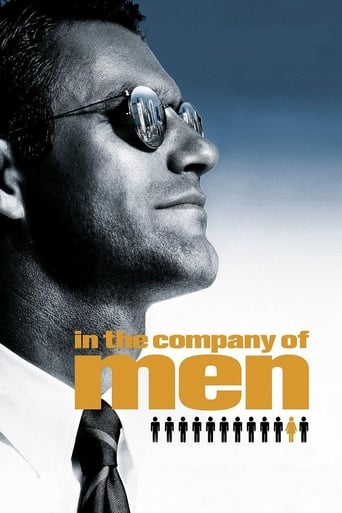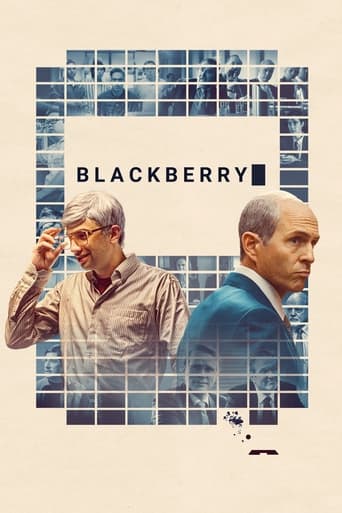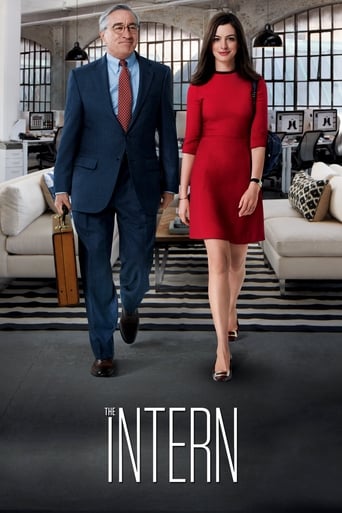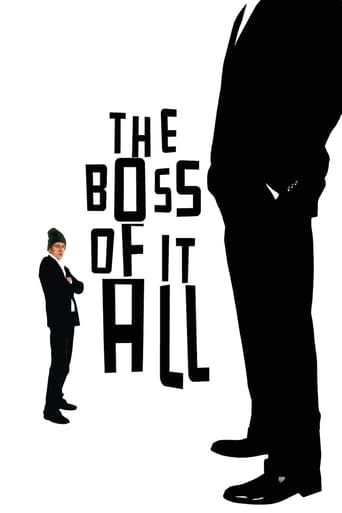
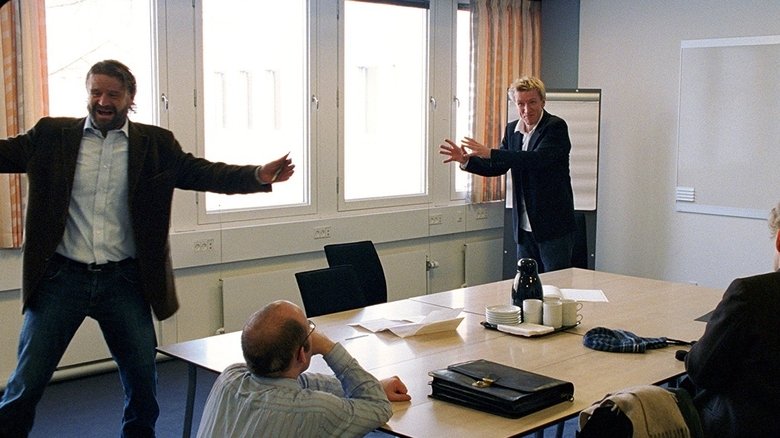
The Boss of It All (2007)
An IT company hires an actor to serve as the company's president in order to help the business get sold to a cranky Icelander.
Watch Trailer
Cast


Similar titles
Reviews
"Direktøren for det hele" is one fun ride, in general. Almost as enjoyable as the plot and the surreal situations that the premise generates is Von Trier's style -or lack thereof- in shooting the movie: bad framing, frequent cuts, characters that sometimes virtually disappear from the scene, irregular sound, no soundtrack... It could be argued -and would probably be a very valid point- that what is considered "style" and "personality" in Von Trier would be a series of very serious film-making mistakes, but, at any rate, the effect is refreshing.Now as to the plot. Ravn, the owner of an IT company wants to sell it, but he's been hiding his identity all the time, pretending to be an employee; in acting that way, he's earned the trust and friendship of his co-workers -actually, his employees-, especially of the six creative minds of the company, which make up a very varied and funny mosaic of personalities. He's trying to sell the company to an irate Icelandic businessman, but he doesn't want to come out as the big boss, so he hires a friend actor, Kristoffer, to pass himself off as the boss. Many surreal and confusing situations will ensue; and also situations that will put Ravn's and Kristoffer's moral standards to the test.I enjoyed this movie, but I have to add that it doesn't work as a comedy -this is something else, perhaps a farce, or a Trieresque view of a comedy, but it certainly didn't provoke the usual reactions that a comedy does; maybe it was labelled as "comedy" because it needed a label, but I don't think it's the right one for this. I recommend watching it with an open mind -if you do so, you'll probably enjoy it as much as I did.
In Lars von Trier's small-scale, Automavision (computer-edited) Danish-language film comedy Ravm (Peter Gantzler) is the spineless (but mean) CEO of an IT company. He's such a people-pleaser he's hidden his real rank all along so the staff won't resent his more unpopular decisions. Now on the verge of selling the company out from under them, he calls in a "self-important, out-of-work" actor, Kristoffer (Jens Albinus) to play the role of "boss of it all"—be his front man by proxy to sign the papers. Lars himself pops up at the middle and end as a voice and at the beginning as a voice and a reflection—just long enough to mock himself and us. He also makes fun of Danes for their sentimentality and giggling and chatter, and, because the buyers of the company are Icelandic, he makes fun of Icelanders for their over-reliance on their ancient sagas and their petulant rages.Americans don't take a beating this time, though there's one American member of the company cadre, Spencer (Jean-Marc Barr) who's completely ineffectual around the office because he can't finish a sentence in Danish. Lars has lots of fun with actors here, and of course with offices and corporate manipulations. Kristoffer has some kind of quixotic idol called Gambini whose "masterpiece" is a droning monologue of a chimney sweep. He puts soot on his forehead for luck when embarking on his role. As the boss, previously known to staff via e-mails only as Svend E., Kristoffer is completely inept, but the six-person startup cadre members nonetheless react to him as if he were the real deal and are variously ready to beat up, have sex with, or marry him. The women act like woman (with especially nice turns by Iben Hjejle and Mia Lyhne), and the men act like children. They weren't even meant to see him: that's just the first thing that goes wrong—due to the actor's excessive zeal, he goes and introduces himself. As he gets in deeper and deeper—with zero preparation—he finds himself constantly begging Ravm for secret coaching sessions "on neutral ground" (which includes the zoo). But these do nothing to limit his amazing ability to gum up the works for everybody, especially Ravm. Things turn farcical when Finnur's lawyer shows up and turns out to be Kristoffer's ex-wife, Kisser (Sofie Grabol). Will she give away the game?This all makes a lot of sense if you've seen Von Trier's earlier film, the semi-documentary The Five Obstructions (2003), in which he and his film-making mentor Jørgen Leth teamed up to provide, indirectly, a kind of skeleton-key to his mind. The Dogme film-making "vow of chastity" reflects von Trier's own masochistic, Brechtian, but—given the grimness of some of his film content—surprisingly playful need to be forever imposing new rules and limitations that challenge actor, filmmaker, and audience. The Five Obstructions, where the director spars with mentor Leth, shows that he's also an affectionate and modest tease. "Although you can see my reflection, this film won't be worth a moment's reflection," is his personal opener to The Boss of It All.That "moment's reflection" von Trier says we won't need suggests on the contrary how reflexive and clever all this actually is. The film, which could be seen as a sort of droll, deadpan parody of "The Office" (though von Trier says he hasn't even seen the TV series), is a set of characters and premises that create their own movie, just as the computer editing device does. And just as we're startled and appalled at times by the ugliness of shifting light and sound levels and pointless jump cuts the Automavision produced, von Trier and his actors may have been surprised at how some of the set-ups turned out. Will Svend, AKA Kristoffer, sign over the company to the growling Icelander, Finnur (Fridrik Thor Fridriksson)? Even he doesn't know. He has to "consult" his "character." And that makes him, like Lars, a big tease. 'The Boss of It All' may be more intriguing than funny—and there will be those, primed too intensely by 'Dogville' and 'Manderlay,' who'll see it as merely cruel and misanthropic, but it's a complete change from his recent stuff, and yet utterly in character.
This will be a little hard to understand, for those who are not familiar with Scandinavian office culture and enterprise democracy. For those who are, it's funny.The unemployed actor gets a job. He's supposed to act as executive, during some sensitive business with an Icelandic buyer. It doesn't develop like he has imagined, but in fact it doesn't develop like anyone has imagined.There's lots of kicking here in every direction and not at least against cultural snobbism. It's von Trier back to the basics, but not that easy to grip for people outside a Scandinavian environment.
Try this. Let's imagine you really want to see a movie. Maybe this one. Nothing wrong with that. But maybe it's also your turn to do some cleaning - you can't remember - but why risk argument or ill-feeling? You decide it was my idea to see the film together. It would be rude to refuse. You're a nice person after all.The owner of a Danish IT company wants to sell up. There is only one problem. When he started the company he invented an imaginary boss to take the rap for unpopular decisions. So no-one has ever met the 'boss of it all' until now. The Icelanders doing the buying insist on dealing with the actual boss. So he hires an actor.The actor, Kristoffer or 'Svend E' knows nothing about the company and finds the buyers are not the only ones he has to bluff convincingly. Over the years, he has 'sent' emails to the staff who start holding him responsible for what he has said - and of course he does not know what he's meant to have said. Ravn, the real owner, can't remember but there was some serious stuff going down. A hilarious screwball comedy, The Boss of It All also poses provocative moral dilemmas about how a boss can use fictions to mistreat workers.Even as a comedy, the film works on several levels. It starts with a basic comedy structure where we know something most of the characters don't. Kristoffer is the butt of the jokes but we want him to win. We want him to guess what he has supposed to have said and somehow turn it to his advantage. All this provides belly laughs at a gut level. Especially when he is accused of 'lousy acting' by a woman who does not know he is acting and means something else, or when he 'has' to have raunchy sex with her. (Even the sex scenes are convincingly real, even while they are excruciatingly funny.)For fans of von Trier's work, there are more subtle jokes. At the start, we hear von Trier's (uncredited) voice-over pointing out we can just about see his (physical) reflection. But the film, he says, is not worth a moment's reflection as it's comedy. It's as if someone had said, "Whatever you do, don't think of 'x'". Immediately, that's what you think about. Von Trier is the man who 'invented' Dogme95 cinema, the back-to-basics arbitrary rules that included 'The director must not be credited' - itself a pun on the theme of the film. Lines like, "Life is a Dogme film" make us wonder how serious von Trier is as a philosopher, or whether it's a joke at our expense. He can be a bit like the Kristoffer character who gleefully insinuates, "I'm better at being irritating on an intuitive level." Then there are jokes about Danes (who are traditionally afraid of conflict - it is very 'un-Danish to be 'bad cop') and gags that play on a historical power struggle between Denmark and Iceland. The many levels all work so fast that everyone can be laughing at something different at any one time.Structurally, the movie dazzles. It gets seriously into screwball mode and then every so often the Narrator returns to inject a Brechtian distance, reminding us that it is fiction, making us think about how it comments on the real world or insidious office politics. We feel a tension, a need to get away from serious thought and just find out what happens. The narrator bows to our desires and promises, god-like, to resolve the dramatic tensions. (Fans of Shakespeare will recall how the Bard would use a Narrator to draw attention to what we were experiencing and so encourage us to analyse it. The Narrator, in Shakespeare's plays, as in The Boss of It All, could be the true boss, telling us what is really happening beneath the surface.) And the dramatic ending will have you clinging to your seat. Hold on to your sides cos if you laugh too much you might miss something.Ever the creator of some new cinematic technique, von Trier has committed the movie's cinematography to a (published) mathematical formula and principle called 'Automavision'. This is designed to 'limit human interference' and free the work from the force of habit and aesthetics. As with Dogme95, no doubt half the film community will ask if he is serious while another sector will go off and studiously practice it. As an added fillip, Danish fans can play 'Lookey', to find hidden visual elements out of context in the movie and first winner gets to be an extra in the next film. Von Trier has also devised a new ascetic aesthetic to 'rediscover his original enthusiasm for film.' And he's tired of playing 'bad cop' in professional relationships while other people get to be 'good cop' and nice to everyone, yet this master of intellectual creation has taken the experience as inspiration for the film, "poking fun at artsy-fartsy culture."They sometimes say that if God didn't exist you'd have to invent him. Sometimes you just need to know who you are dealing with. You need The Boss of it All. At least in this film Lars von Trier credits himself as Director. Not since The Five Obstructions has the question of authorship been so seriously questioned. Even the character of the actor, who wields enormous power, has to consult his 'character' on how things should proceed.From such serious polemics as Dogville and Manderlay, the cowboy romp of Dear Wendy, the quasi philosophy of The Idiots, and the serious mainstream challenges of Dancer in the Dark and Breaking the Waves, one of the most original creative forces in contemporary cinema has turned his technical genius to pure comedy. Gainsayers will still call him pretentious, but they may laugh their socks off before they find out who's telling the joke.





